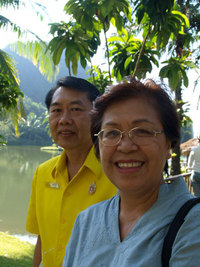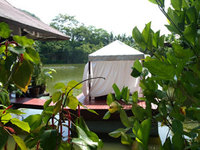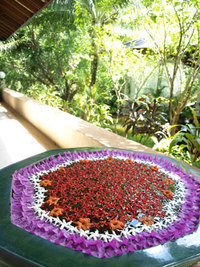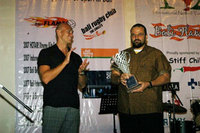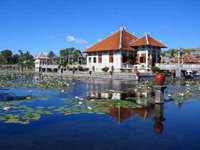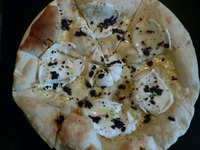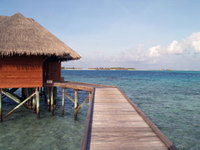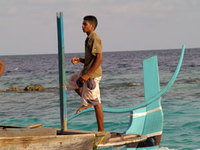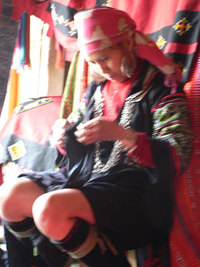
Eric Simmard puts community first. Pix by Mallika Naguran
When staying at any six of Victoria’s boutique resorts in Vietnam and Cambodia,you can sense an air of care for the local environment and the community. Facilities are provided within resort lobbies for villagers to demonstrate their art and display handmade handicrafts such as woven conical hat, thatched blankets and silver trinkets for sale. This is on top of other fundamental energy saving practices and recycling efforts.
I asked managing director Mr Eric Simard on his commitment to maintaining a green environmental policy, in particular, the Victoria Green Day, a clean up effort involving students, residents and staff across Vietnam and Cambodia.
What prompted you to start this green movement?
Our aim is to encourage all to preserve a green, clean and fresh environment to welcome visitors to Vietnam and Cambodia. As a leading luxury hotel and resort group, we have a responsibility to set a good example. Our properties are in areas far from the crowds of modern tourism, where people are slowly learning that a clean environment is a welcoming one for tourists – as well as something that benefits the entire local community. We hope that “Victoria Green Day” will keep the environment green, clean and protected. By doing so, we believe that being green will become a natural part of our lives.
What was the cost to Victoria Resorts in organizing the clean up?
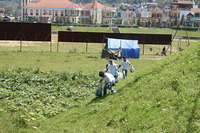
Around 9 tonnes of junk were picked up at Sapa
The costs to our resorts in organizing Victoria Green Day were largely time and effort spent in meeting with governmental authorities for permits, coordinating with schools and many staffs being away from work to participate in the event. Actual costs included food preparation and printing of t-shirts for participants and travel expenses for media, around USD 3,500. With such low monetary costs, an event like this can be emulated by other companies and organizations in Vietnam and Cambodia.
What impact has this on others?

Beautiful, mountainous Sapa in Northern Vietnam
Staffs were very enthusiastic as they realized it is absolutely necessary to have a clean environment for our well-being and for future generations. They know that land is heritage and it is important to keep it natural and intact, without mounds of garbage piling up.
Our guests are very impressed to learn how committed we are in trying to preserve the environment and the local culture. They always are delighted when they see local crafts in the rooms and local music and dance shows in the evenings during dinner at some of our properties. Even journalists who follow our Victoria Green Day since its creation are known to get involved in garbage collection.
What's the greatest satisfaction gained from organizing this?
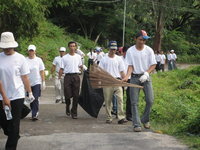
Adults at Victoria Chau Doc got into the green act
We are proud to be the first company to organize such an event as Victoria Green Day in Vietnam and to set an example for others. Year 2007 was very rewarding, especially in Sapa, where we saw more than 1600 participants. Many schools have joined us and it is good to see that Vietnamese children are enthusiastic to learn about the environment.
Are there other plans to care for the people’s welfare?
Activities such as medical check ups for children, seniors and expectant mothers who cannot afford medical care in the areas are being planned where our hotels and resorts are located. For this project we work in collaboration with the Children’s Action foundation.
Victoria Hotels & Resorts is a boutique group of six luxuryIndochina retreats embracing off–the-beaten-track mountain and beach spa resorts in Vietnam, two colonial-style hotels in the Mekong Delta, and an elegant spa resort at Angkor Wat in Cambodia.
Photos courtesy of Ronan Bianchi, GM of Victoria Phan Thiet Beach Resort & Spa, and a champ for community involvement.
Visit Victoria Resorts at www.victoriahotels.asia.
Contact Eric Simard.









